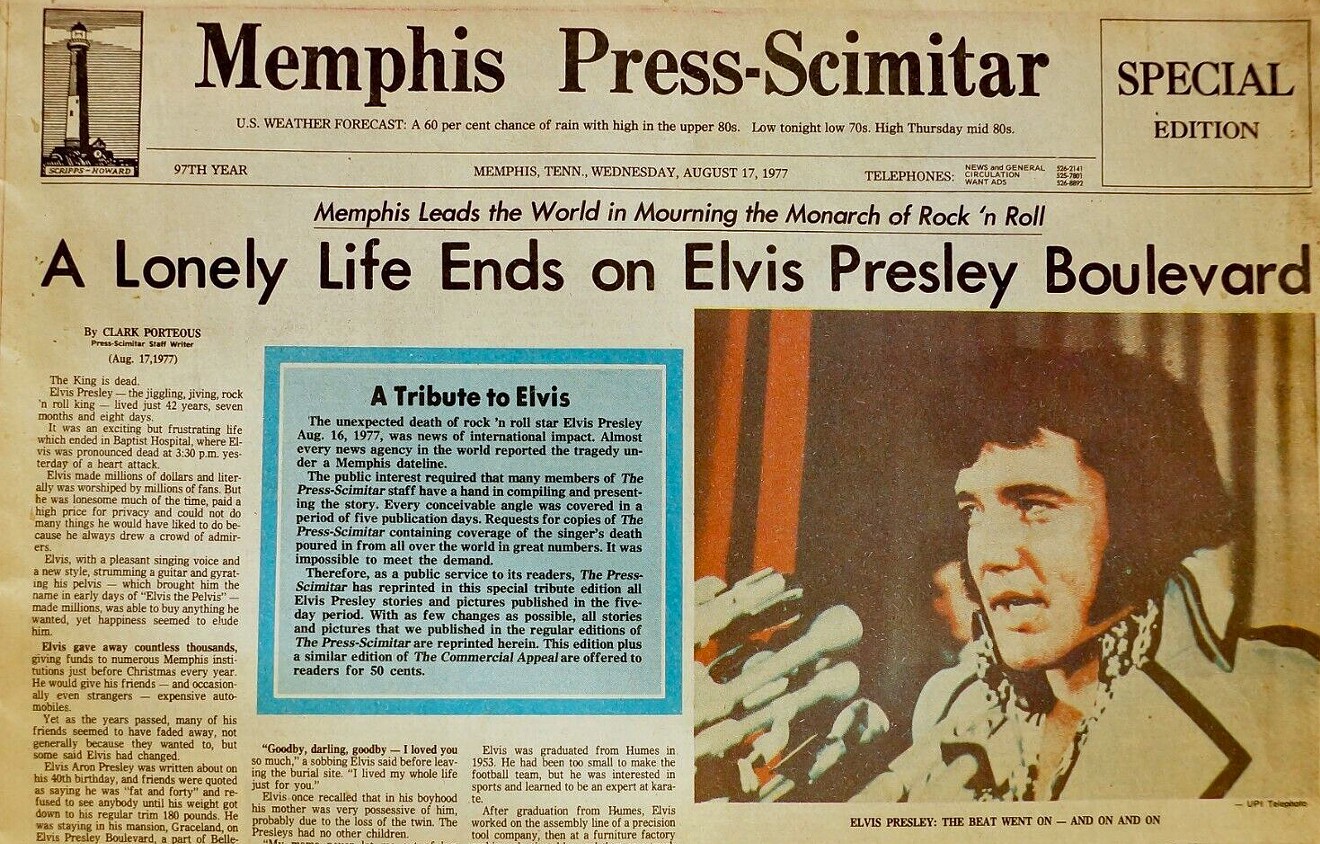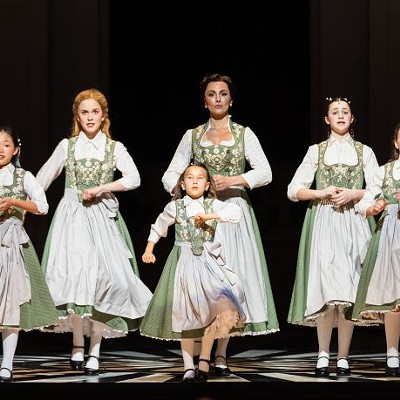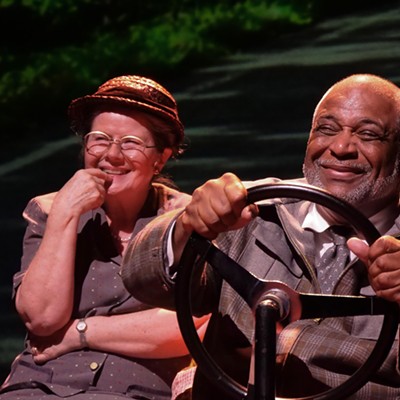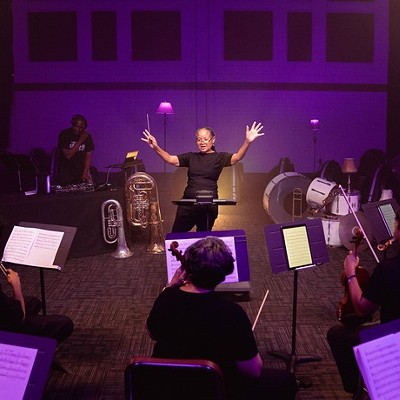It’s 1977, and Twyla Higgins is a 19-year-old Texas girl with her late musician father’s guitar and big dreams about making her own career as a country music singer and songwriter.
On a whim—and as a way to break away from a repressive Holy Roller mother—she takes a bus to Memphis to attend the funeral of one of her musical heroes, Elvis Presley. On a whimmier whim, she decides to head to Nashville and Ground Zero for country music to make her mark.
Along the way she meets an odd assortment of characters in and out of the industry, as well as men with questionable intentions. There’s musical promises both delivered and dashed. There’s a killing. And blackmail. And the haunting murder ballad that Twyla writes—and which becomes a huge success—sure seems to be more an exercise in factual journalism than creative songwriting.
That’s the gist of the new novel The Last Verse (368 pp., $30, William Morrow) by Caroline Frost. The author, who also penned Shadows of Pecan Hollow, will be in conversation about the book with longtime local musician/producer/studio owner Paul Beebe on April 13 at Murder by the Book.
Frost says that it was definite choice to set the book in a time nearly 50 years ago.
“You have a little more leeway as a suspense writer in [storytelling] when you don’t have cell phones. Where the answer to everything is at your fingertips and you can record everything,” Frost says via Zoom from her home in Los Angeles, where she lives with her husband and three children.
“And aesthetically, I love the ‘70s. It was also a gritty time, sort of tawdry and rough, and that’s pretty good for crime stories. I anchored it in ’77 because the death of Elvis was a great way to do it, and it had some symbolic meaning for [Twyla].”
For research, Frost listened and dissected hundreds of songs to break them into components. She also took a solo trip to Nashville and spent a week walking around, seeing the sites, and attending shows at clubs and theaters. Finally, she visited the Country Music Hall of Fame, poring through trade papers from the ‘70s era and watching recorded performance footage.
“They were lovely at the Hall of Fame. Michael McCall, who’s in charge of the archives, walked me through the exhibitions. And the one they had on at the time was about Outlaw Country. So, I got to see the famous embroidered Gram Parsons [Nudie] suit, and guitars and cool old flyers and handwritten lyrics,” she says.
“So much of writing is atmosphere and absorbing the little details. If I tried to get all the facts down, it wouldn’t have felt natural. But something about just going through things there really helped to anchor me in that world. I was in town for four and a half days, so I only spent one long afternoon in the archives. I could have been there for a week. I really nerded out on that!”
As a lifelong fan of country/folk/bluegrass music, Frost has a particular affinity for the “murder ballads” in which the song’s narrator recounts usually in first or third person some deathly deed.
The genre stretches back hundreds of years from Olde England to Africa, Eastern Europe, and today’s Mexican narcocorridos which often name check still-living-and-active drug dealers and bad hombres still at work.
Frost says her own favorite murder ballads include “The Night the Lights Went Out in Georgia” and the traditional “The Long Black Veil.” But she also notes that the genre is still alive (no pun intended) today—and not just country music.
“SZA just came out with one called ‘Kill Bill.’ It’s really good!” she laughs. “But you can go all the way back to Mississippi John Hurt with ‘Frankie.’ It’s about this woman whose man has done her wrong after she gets him a $100 suit. So, she takes her revenge. And the judge sides with her!”
As for writing the story, Frost notes in the book’s press materials that she achieved a clearer understanding “that art cannot exist without truth; that music, or any creative practice, can set you free; that making art is at once a private pursuit and a way to connect to others, even to a higher power.”
“I do believe that,” she says. “We are all creative beings. Even math and science can be creative, it doesn’t have to just be the arts. What is your jazz? It’s about what lets you go wild and free and whatever lets you channel that creative engine for you. It’s essential and healing and just as important as nature and pharmaceuticals to get yourself straight.”
Prior to writing full time, Frost spent 14 years working as a family and marriage therapist. She also pursued a Masters in Professional Writing, which she received in 2006. She began her debut novel Shadows of Pecan Hollow in 2012, but didn’t go full bore into it.
“I originally had a revelation—but also like a panic attack—about supporting myself as a writer,” she says. “I didn’t want to feel too invested in case I got disappointed.” Upon completion, she sent the manuscript off to 30 agents for possible representation, got some bites, and the book was finally published in 2022.
Finally, we ask about her trip to Houston and connection to Paul Beebe. It turns out that Frost is a former Houstonian herself, living here from 1980-1999 and then again from 2003-2004. Her entire family still lives here.
She and Beebe both attended St. John’s School (though Beebe was older), and her older sister was also friends with Paul’s older brother David. He is the former Houston music Zelig and a current County Commissioner of Presidio County, which includes Marfa where he was formerly the Justice of the Peace and City Councilman.
“For my 17th birthday party my mother hired a band for a backyard shindig, and it was the El Orbits! They were so cool and awesome!” Frost says of David’s former group. “And my little brother, Will Cheadle [stage name: Chi Chi Rodriguez] plays bass in Houston for the punk band the Hates! They, along with [guitarist] Hunter Perrin were my musical sources.”
Frost does note that Beebe was the most responsive, even when the questions got in the weeds.
“I asked him if it was possible to break a guitar string by hitting it too hard, and he says ‘Oh yeah! Probably the A string’” she laughs. “And then I asked, ‘Can you get hit in the face by it?’ And he said ‘Oh yeah, that’s happened to me!’”
Caroline Frost will be in conversation with Paul Beebe about The Last Verse at 3 p.m. on Saturday, April 13, at Murder by the Book, 2342 Bissonnet. For more information and signing policy, call 713-524-8597 or visit MurderBooks.com.
For more on Caroline Frost, visit CarolineFrost.com
Support Us
Houston's independent source of
local news and culture
account
- Welcome,
Insider - Login
- My Account
- My Newsletters
- Contribute
- Contact Us
- Sign out

Elvis Presley's 1977 funeral sets the plot in motion for Caroline Frost's novel "The Last Verse."
Newspaper front page
[
{
"name": "Related Stories / Support Us Combo",
"component": "11591218",
"insertPoint": "4",
"requiredCountToDisplay": "4"
},{
"name": "Air - Billboard - Inline Content",
"component": "11591214",
"insertPoint": "2/3",
"requiredCountToDisplay": "7"
},{
"name": "R1 - Beta - Mobile Only",
"component": "12287027",
"insertPoint": "8",
"requiredCountToDisplay": "8"
},{
"name": "Air - MediumRectangle - Inline Content - Mobile Display Size 2",
"component": "11591215",
"insertPoint": "12",
"requiredCountToDisplay": "12"
},{
"name": "Air - MediumRectangle - Inline Content - Mobile Display Size 2",
"component": "11591215",
"insertPoint": "4th",
"startingPoint": "16",
"requiredCountToDisplay": "12"
}
]
KEEP THE HOUSTON PRESS FREE...
Since we started the Houston Press, it has been defined as the free, independent voice of Houston, and we'd like to keep it that way. With local media under siege, it's more important than ever for us to rally support behind funding our local journalism. You can help by participating in our "I Support" program, allowing us to keep offering readers access to our incisive coverage of local news, food and culture with no paywalls.
Bob Ruggiero has been writing about music, books, visual arts and entertainment for the Houston Press since 1997, with an emphasis on classic rock. He used to have an incredible and luxurious mullet in college as well. He is the author of the band biography Slippin’ Out of Darkness: The Story of WAR.
Contact:
Bob Ruggiero
Trending Arts & Culture
- Reviews For The Easily Distracted:
Boy Kills World - Bring a Friend With You to See A.D. Players' Heartwarming Production of Driving Miss Daisy.
- The 10 Best And Most Controversial Hustler Magazine Covers Ever (NSFW)
-
Sponsored Content From: [%sponsoredBy%]
[%title%]

Don't Miss Out
SIGN UP for the latest
arts & culture
news, free stuff and more!
Become a member to support the independent voice of Houston
and help keep the future of the Houston Press FREE
Use of this website constitutes acceptance of our
terms of use,
our cookies policy, and our
privacy policy
The Houston Press may earn a portion of sales from products & services purchased through links on our site from our
affiliate partners.
©2024
Houston Press, LP. All rights reserved.







